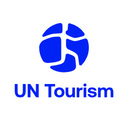Statistics, Sustainability and Governance: UN Tourism Hosts Week of Meetings to celebrate Milestones and Strategize on Way Forward
UN Tourism has concluded a week of multi-stakeholder meetings as it further establishes its leadership in the global statistics and knowledge management space.

With the global tourism sector shifting towards greater sustainability, the meetings at the Organization’s Madrid headquarters advanced work around effective governance and harmonized measurement and monitoring.
Statistics for Sustainability
The Expert Group on Measuring the Sustainability of Tourism (MST) met for the fifth time, moving on from the technical development of the landmark UN-endorsed Statistical Framework to its global implementation. Endorsed by the 55th session of the UN Statistical Commission, this framework is the first sectoral example of statistics going beyond GDP, demonstrating the integration of data across economic, environmental, and social dimensions, from global to local scales. During its meeting in Madrid, the Expert Group - made up of representatives of ministries, national statistical offices, international and regional organizations, subnational authorities, academic institutions and the private sector – explored the potential for a common set of indicators for international reporting on the sustainability impacts of the sector.
The UN Tourism Committee on Statistics celebrated its 20th anniversary, recognizing the leadership over the past mandate of Austria and Spain as co-Chairs, as well as Saudi Arabia and Seychelles as Vice-Chairs. To mark the milestones achieved so far, the Committee reflected on the future of tourism statistics. High-level representatives from 21 countries from every global region, as well as from international and regional organizations, academia, subnational authorities and the private sector, shared their experiences and vision for developing systems for tourism statistics. Additionally, delegates were informed of UN Tourism’s new dataset on tourism employment developed jointly with the International Labor Organization (ILO).
Landmark launch of tourism ESG initiative
In partnership with the University of Oxford SDG Impact Lab and with the generous support of easyJet holidays, UN Tourism is working to develop the first harmonised Environmental, Social, and Governance (ESG) Framework tailored specifically for the sector. The Madrid headquarters hosted the inaugural event of the ESG Framework for Tourism Businesses, bringing together over 45 leading experts in the ESG space, from around the world. Attendees debated key aspects of the Framework and proposed critical items for future action.
Moving forward, UN Tourism will set up an ESG Advisory Panel, and present a preliminary Terms of Reference for approval by the UN Tourism Executive Council.
Related links
- Twentieth meeting - Committee on Statistics
- Measuring the Sustainability of Tourism (MST)
- ESG Framework for Tourism Businesses
- Tourism Statistics Database
About UN Tourism
The World Tourism Organization (UN Tourism) is the United Nations agency responsible for the promotion of responsible, sustainable and universally accessible tourism.
As the leading international organization in the field of tourism, UN Tourism promotes tourism as a driver of economic growth, inclusive development and environmental sustainability and offers leadership and support to the sector in advancing knowledge and tourism policies worldwide.
Our Priorities
Mainstreaming tourism in the global agenda: Advocating the value of tourism as a driver of socio-economic growth and development, its inclusion as a priority in national and international policies and the need to create a level playing field for the sector to develop and prosper.
Promoting sustainable tourism development: Supporting sustainable tourism policies and practices: policies which make optimal use of environmental resources, respect the socio-cultural authenticity of host communities and provide socio-economic benefits for all.
Fostering knowledge, education and capacity building: Supporting countries to assess and address their needs in education and training, as well as providing networks for knowledge creation and exchange.
Improving tourism competitiveness: Improving UN Tourism Members' competitiveness through knowledge creation and exchange, human resources development and the promotion of excellence in areas such as policy planning, statistics and market trends, sustainable tourism development, marketing and promotion, product development and risk and crisis management.
Advancing tourism's contribution to poverty reduction and development: Maximizing the contribution of tourism to poverty reduction and achieving the SDGs by making tourism work as a tool for development and promoting the inclusion of tourism in the development agenda.
Building partnerships: Engaging with the private sector, regional and local tourism organizations, academia and research institutions, civil society and the UN system to build a more sustainable, responsible and competitive tourism sector.
Our Structure
Members: An intergovernmental organization, UN Tourism has 160 Member States, 6 Associate Members, 2 Observers and over 500 Affiliate Members.
Organs: The General Assembly is the supreme organ of the Organization. The Executive Council take all measures, in consultation with the Secretary-General, for the implementation of the decisions and recommendations of the General Assembly and reports to the Assembly.
Secretariat: UN Tourism headquarters are based in Madrid, Spain. The Secretariat is led by the Secretary-General and organized into departments covering issues such as sustainability, education, tourism trends and marketing, sustainable development, statistics and the Tourism Satellite Account (TSA), destination management, ethics and risk and crisis management. The Technical Cooperation and Silk Road Department carries out development projects in over 100 countries worldwide, while the Regional Departments for Africa, the Americas, Asia and the Pacific, Europe and the Middle East serve as the link between UN Tourism and its 160 Member States. The Affiliate Members Department represents UN Tourism's 500 plus Affiliate members.
UN Tourism Communications Department
+34 91 567 8100
UN Tourism
